‘Corrupt bargain’
Andrew Jackson received the most popular votes and the most electoral votes in the election of 1824. He did not become president.
This essay is adapted from John Quincy Adams: Campaigns and elections.
The year 1824 was a political turning point in which none of the old rules applied. For the first time, the popular vote mattered—eighteen states were to choose their presidential electors by popular vote while only six states still left the choice up to their state legislatures. The electorate also featured a new swath of regionally focused voters only recently enfranchised thanks to the removal of property ownership as a criterion for white male suffrage. In this new climate regional endorsements of candidates by state conventions or state assemblies—popularity—rather than congressional intrigue, would drive the nomination process.
For the first time, the popular vote mattered.
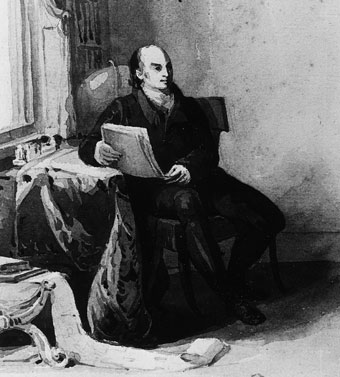
Although John Quincy Adams should have been the heir apparent to the presidency as James Monroe's secretary of state, four other men also wanted to be President, each with substantial regional backing.
John C. Calhoun of South Carolina had served as secretary of war in the Monroe administration and had support from slave owners in the South.
The politically ambitious and able William H. Crawford of Georgia enjoyed the support of party regulars in Congress—especially Senator Martin Van Buren of New York—as well as substantial footing in Georgia. Crawford had served as secretary of war and of the treasury in the two previous administrations.
The most visible candidate was House Speaker Henry Clay. A leading War Hawk during the War of 1812, Clay had a power base in Kentucky, was a gifted public speaker, and had support for his so-called American System of protective tariffs and federally sponsored internal improvements.
[Jackson's] supporters talked about him as another George Washington.
Then there was General Andrew Jackson from Tennessee, the hero of the Battle of New Orleans. Jackson's reputation as an Indian fighter and western expansionist, owing to his military escapades in Spanish Florida, gave him national standing above all other candidates. It also helped that Jackson could enter the race as an outsider, a defender of the Republic who had risked his life in service of his nation. In fact, his supporters talked about him as another George Washington.
Although Adams was a centrist politician of sorts—a Jeffersonian-Federalist, to coin a new term—many Americans still identified him as a New Englander and as the son of the old Federalist leader John Adams. Additionally, many staunch Democratic-Republicans blamed Adams and his supporters for having transformed the party of Jefferson into a disguised form of Federalism under the rubric of "National Republicans." Southerners, moreover, objected to Adams because of his moral opposition to slavery.
Building a coalition in such circumstances would be no easy task.
Four Democratic-Republican candidates
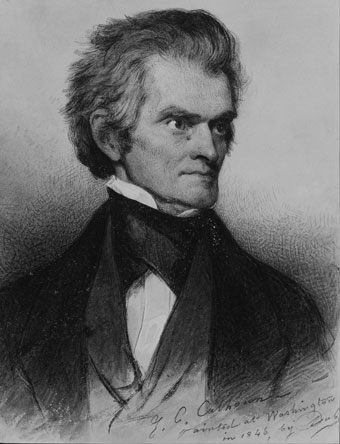
In the summer of 1824, an unofficial caucus of less than a third of the congressmen eligible to attend nominated Crawford for president. Supporters of Adams denounced the caucus bid, and the Massachusetts legislature nominated Adams as their favorite-son candidate. The Kentucky legislature did the same for Clay. Both nominations followed the pattern set by the Tennessee legislature, which had nominated Andrew Jackson back in 1822 and sent him to the Senate to burnish his credentials. John C. Calhoun of South Carolina dropped out of the presidential race by announcing his bid for the vice presidency.
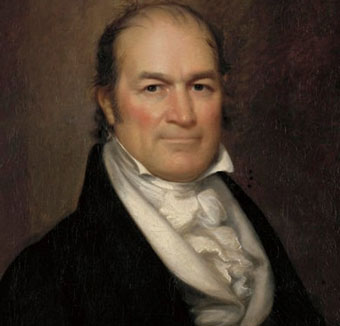
All four remaining candidates were nominal Democratic-Republicans—the Federalist Party had disintegrated by this point—and the election proceeded without reference to party affiliation. Jackson, whose credentials were based largely on his personality and heroic exploits, emerged as the man to beat. The size of his rallies in key swing states—Pennsylvania, Illinois, Indiana, New York, and New Jersey—far surpassed or rivaled those for Clay and Adams.
Jackson was the only candidate to attract significant support beyond his regional base, and his Jackson's popularity foretold a new era in the making. When the final votes were tallied in the eighteen states requiring a popular vote, Jackson polled 152,901 votes to Adams's 114,023; Clay won 47,217, and Crawford 46,979. The electoral college gave Jackson the highest total as well, but his 99 electoral votes electoral were 32 fewer than he needed for a majority and thus the presidency. Adams won 84 electoral votes followed by 41 for Crawford and 37 for Clay.
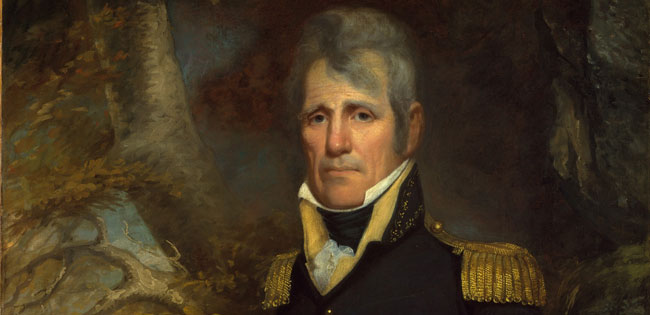
Acting under the Twelfth Amendment of the Constitution, the House of Representatives met to select the president from among the top three candidates. Henry Clay, as the candidate with the fewest electoral votes, was eliminated from the deliberation. As Speaker of the House, however, he became the most important player in determining the outcome of the election in the House, which took place in February 1825. With each state having one vote, as determined by the wishes of the majority of each state's congressional representatives, Adams emerged as the winner with a one-vote margin of victory. Most of Clay'
s supporters, joined by several old Federalists, switched their votes to Adams in enough states to give him the election. Soon after his inauguration, Adams appointed Clay as his secretary of state.
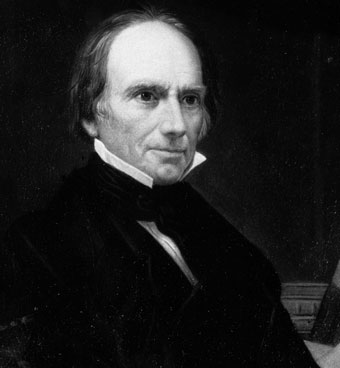
A "corrupt bargain"
Jackson could barely contain his fury at having lost the election in what he claimed was a "corrupt bargain" between Adams and Clay to overturn the will of the people. To most Jackson supporters, it looked as if congressional leaders had conspired to revive the caucus system, whereby Congress greatly influenced—if not determined—the selection of the president. Jackson laid the blame on Clay, telling anyone who would listen that the Speaker had approached him with the offer of a deal: Clay would support Jackson in return for Jackson's appointment of Clay as secretary of state. When Jackson refused, Clay purportedly made the deal with Adams instead. In Jackson's words, Clay had sold his influence in a "corrupt bargain."
Clay denied the charges, and while there certainly had been some behind-the-scenes maneuvering by Clay to push the vote to Adams, it most likely reflected Clay's genuine doubts about Jackson's qualifications for the office. In assessing the odds of successfully forwarding his own political agenda, Clay questioned Jackson's commitment to the "American System" of internal improvements. On the other hand, Clay knew that Adams had supported it consistently over the years. Also, the loss of three states that Jackson had won in the popular vote—Illinois, Maryland, and Louisiana—due to the defection of congressmen who supported Adams suggests that more was involved in the outcome than the political maneuvering of one man. Enraged, Jackson resigned his seat in the Senate and vowed to win the presidency in 1828 as an outsider to Washington politics.
Within months of Adams's inauguration, the Tennessee legislature nominated Jackson for president in 1828. Over the next three years, Jackson put together a highly disciplined grassroots campaign with one goal: to defeat John Quincy Adams in a rematch that would pit "the people" against Adams.
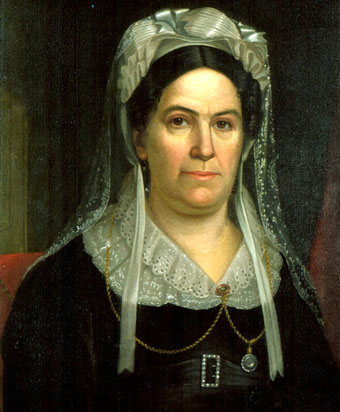
To countless Americans, Jackson's duels, brawls, executions, and unauthorized ventures represented the victory of what was right and good over the application of stiff-minded and narrowly construed principles. Attacks on Jackson’s wife, Rachel, as an "American Jezebel" because she had married Jackson before her divorce from an earlier marriage had been finalized simply enhanced Jackson's image as an authentic American, a hero who had drawn upon his natural nobility and powerful will to prevail against unscrupulous political foes, educated elitists, the pride of the British army, and "heathen savages"—often at the same time.
The 1828 campaign turned out more than twice the number of voters who had cast ballots in 1824—approximately 57 percent of the electorate. Jackson won the election in a landslide, and by a wide margin of 95 electoral votes. Adams carried New England, Delaware, part of Maryland, New Jersey, and sixteen of New York's electoral votes—nine states in all. Jackson carried the remaining fifteen states of the South, Northwest, mid-Atlantic, and West. Incumbent Vice President John C. Calhoun won 171 electoral votes to 83 for Richard Rush of Pennsylvania, Adams's running mate.
In four years, the “corrupt bargain” had yielded to “Jacksonian democracy.”
